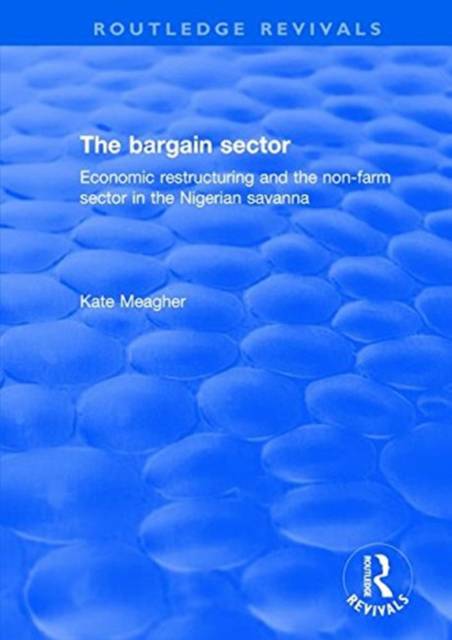
- Retrait gratuit dans votre magasin Club
- 7.000.000 titres dans notre catalogue
- Payer en toute sécurité
- Toujours un magasin près de chez vous
- Retrait gratuit dans votre magasin Club
- 7.000.0000 titres dans notre catalogue
- Payer en toute sécurité
- Toujours un magasin près de chez vous
Description
Does the non-farm sector offer new hope for rural Africa? In the face of economic crisis and restructuring across Africa, small-scale enterprise has come to play a central role in rural livelihood and accumulation strategies. This apparent dynamism has attracted favourable attention from development thinkers and policy-makers, who have identified non-farm enterprise as a new low-cost agent of rural development. The research in this book challenges the growing consensus on the developmental potential of the non-farm sector. On the basis of recent fieldwork, the author argues that the prospects for non-farm led growth have been seriously undermined by the crippling pressures of structural adjustment, agricultural instability and rural as well as interregional inequality. Detailed village case-studies from the populous and highly commercialized grain surplus region of the Nigerian savanna leads the reader to investigate the link between local economic and social realities, and the wider regional, national and global processes that form the development of the non-farm sector in Africa. Far from offering a bargain solution, the author demonstrates that significant investment in agriculture and entrepreneurial development will be needed to create an enabling environment for non-farm growth.
Spécifications
Parties prenantes
- Auteur(s) :
- Editeur:
Contenu
- Nombre de pages :
- 196
- Langue:
- Anglais
- Collection :
Caractéristiques
- EAN:
- 9781138701618
- Date de parution :
- 11-11-19
- Format:
- Livre broché
- Format numérique:
- Trade paperback (VS)
- Dimensions :
- 175 mm x 246 mm
- Poids :
- 362 g

Les avis
Nous publions uniquement les avis qui respectent les conditions requises. Consultez nos conditions pour les avis.






